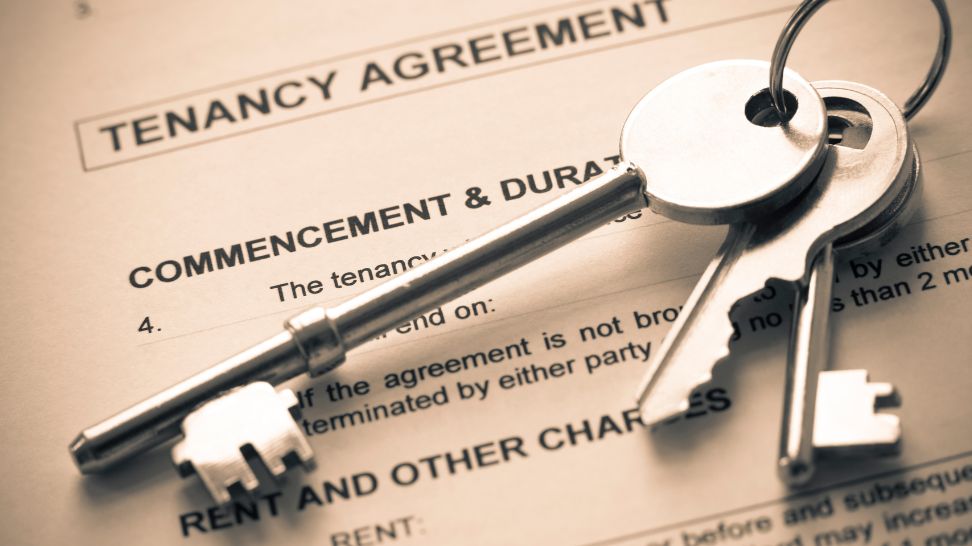Do you own one of the almost 20 million rental properties in the U.S.? A rental property is one of the many lucrative real estate investments you can make. It can generate plenty of passive income each year.
However, you will want to take steps to protect a rental property from a lawsuit. Learning how to protect a rental property from a lawsuit can help you avoid issues with investment properties.
Are you interested in discovering the different ways in which you can protect a rental property? Find the guidance you need below.
Legal Structures for Property Ownership
Recent research revealed the roughly 19.3 million rental properties in the U.S. consist of about 49.5 million individual rental units. Individual investors own about 38% of these units, while LLPs, LPs, and LLCs own more than 40%. Meanwhile, between 2 and 3% of these units are owned by trustees of estates.
When figuring out how to protect a rental property from a lawsuit, consider the legal structure you use when taking ownership. Forming an LLC or using a trust may deliver the proper protection.
Forming an LLC for Asset Protection
Many Americans know the value of creating an LLC when starting a business. However, they don’t always realize that establishing an LLC is also an effective approach to take when purchasing a rental property.
You can utilize an LLC, short for limited liability company, to separate personal assets from the business you’ve set up to generate income with a rental property. It’ll prevent others from going after your rental property if they ever decide to file a lawsuit.
An asset protection attorney can speak further about the benefits of forming an LLC to protect a rental property from a lawsuit.
Benefits of Using a Trust for Property Ownership
By starting an LLC when you invest in a rental property, you can provide it with adequate protection from a lawsuit. But why not go the extra mile to protect it even more?
An offshore trust is valuable for individual investors who purchase rental properties. It can allow you to create an offshore asset protection plan with an attorney’s assistance.
Placing a rental property and other assets — such as cash, vehicles, and securities — into an offshore trust can shield them from creditors, business disputes, and lawsuits.
Comprehensive Insurance Coverage
Some rental property owners purchase homeowners’ insurance policies and assume they’ll be covered if an accident leads to tenants sustaining injuries or inflicting property damage. They’re often surprised to hear that homeowners’ insurance will not be enough.
Instead, you should prepare to pay for a comprehensive landlord insurance policy. Explore the other types of insurance for a rental property to ensure you don’t leave yourself open to legal issues.
Types of Insurance
The right landlord insurance policy should cover everything in your rental property not covered by the average homeowners’ insurance policy. It should provide coverage against property damage, personal liability cases, and more.
However, you may want to dig a little deeper when investing in insurance for a rental property and consider these types of insurance:
- Flood Insurance
- Income Replacement Insurance
- Personal Umbrella Insurance
You might also want to require tenants to invest in their own renters’ insurance policies. Only about 75% of landlords ask tenants to secure this type of insurance.
Choosing the Right Coverage
No matter which type of insurance policies you choose to take out for a rental property, aim to pick the right insurance plans. These tips should help you achieve this goal:
- Search for a reputable insurance company to provide comprehensive insurance coverage
- Shop around for the lowest rates from landlord insurance companies
- Evaluate a comprehensive insurance policy annually and make adjustments
Drafting and Enforcing a Solid Lease Agreement
Lease agreements are legally binding contracts designed to protect both landlords and tenants. If you plan to rent out a property, putting together a solid lease agreement and enforcing it will be of the utmost importance.
Each state has laws regarding lease agreements that landlords must follow. But generally speaking, the lease agreement you present to tenants should clearly spell out how much rent tenants will pay you, how long they’ll pay it for, and what your expectations are.
A substandard lease agreement could leave you more susceptible to a lawsuit than you might like. Working with a real estate attorney can help you create an iron-clad lease agreement that won’t open you up to legal action.
Essential Clauses for Protection
A typical lease agreement between a landlord and tenant contains dozens of clauses. A few are more important than others when it comes to landlords trying to learn how to protect a rental property from a lawsuit.
- Severability clause: Ensures a lease agreement remains valid even if a court finds that a small portion of it isn’t valid
- Use of Premises clause: States the acceptable ways tenants may use a rental property
- No-Subletting clause: Stops tenants from renting out a rental property when they don’t need it
- Early Termination clause: Reveals the scenarios when a landlord can choose to end a lease agreement early
- Indemnification of Landlord clause: Prevents tenants from holding a landlord responsible for damages done to property and people
Tenant Screening and Selection Process
A 2022 Urban Institute Initiative report states that nearly 90% of American landlords run background checks on potential tenants. This same report also found that about 20% of landlords admit to rejecting over 75% of applicants. Let’s discuss why screening tenants and using a foolproof selection process is such an important step for landlords.
Importance of Background and Credit Checks
Some landlords pay the price for not conducting background and credit checks. These types of checks are important because they shed light on tenants who have:
- Previous evictions
- Criminal backgrounds
- Weak job histories
Don’t pass up on these checks since they’ll help you learn everything you need to know before renting a property to tenants.
Legal Considerations in the Screening Process
While it’s worth screening potential tenants for a rental property, be extra careful about how your screening process plays out. You could inadvertently subject yourself to a lawsuit if you break the discrimination laws that many states have in place. You aren’t allowed to turn down tenants based on things like:
- Race
- Gender
- Religion
You must also secure written consent from people before performing background or credit checks on them.
Regular Property Maintenance and Safety
Many experienced landlords advise newer ones to prepare to spend about 50% of the income a rental property brings in each year on property maintenance and repairs. Plan to set aside at least some income from a rental property to improve its safety and avoid lawsuits.
Routine Inspections and Addressing Hazards
As a landlord, you have the right to inspect a rental property whenever you would like after giving tenants notice. Take advantage of this by performing inspections at least once each year.
If you spot safety hazards while inspecting a rental property, immediately make the necessary repairs. It’ll go a long way toward proving you made every reasonable attempt to ensure your tenants’ safety.
Maintenance Records
In addition to maintaining and repairing a rental property, keep accurate records. Write down when you perform maintenance and save any receipts related to it. These records can prove you’ve worked hard to protect tenants from possible problems.
Clear Communication and Documentation
At the end of the day, simply communicating with tenants can work wonders for you as a landlord. It’ll allow you to establish better relationships with them, and it could make them less likely to want to take legal action against you.
Effective Tenant Communication Strategies
If tenants have issues while living in your rental property, they should have a quick and easy way to contact you. They should have the option to call, text, or email you or a property management company.
If you don’t stay on top of communicating with tenants, it could present problems in the future if they claim you were negligent in your duties as a landlord.
Written Documentation of Agreements and Interactions
The last thing you want to do is put yourself in the middle of a “he said, she said” lawsuit with tenants who lived in your rental property. For this reason, you should write down all your interactions with tenants and the agreements you come to while they live on your property.
If the only evidence you have to stand on during legal proceedings is your word, it might not be enough to convince a judge to rule in your favor during a lawsuit.
Want more information on how to protect a rental property from a lawsuit? Contact Us Now
If you need help protecting a rental property from a lawsuit, Blake Harris Law is here to help. We can develop an effective asset protection plan for a rental property and other valuable assets you might have. Contact Blake Harris Law to speak with an experienced asset protection lawyer.



